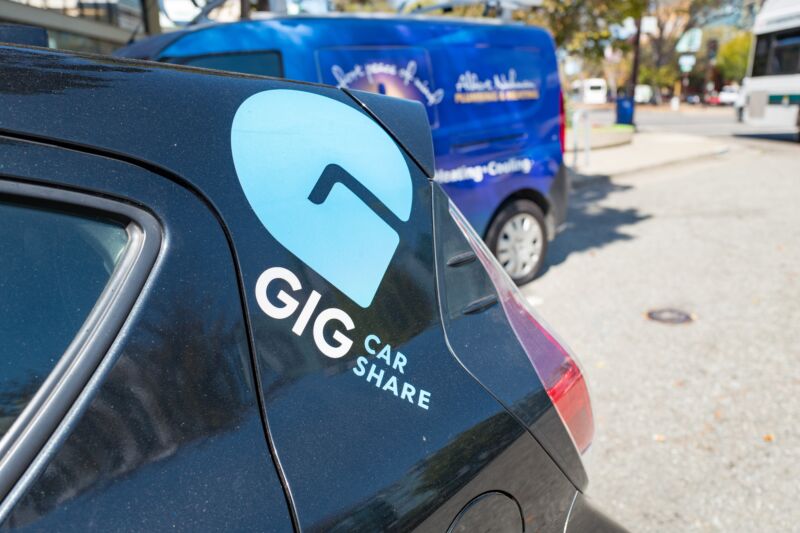
Enlarge / One of GIG Car Share's Toyota Priuses on a street in Berkley, California. (credit: Smith Collection/Gado/Getty Images)
Over the weekend, a trip to the Californian boonies by Guardian journalist Kari Paul turned into a cautionary tale about the perils of the connected car and the Internet of Things. Paul had rented a car through a local car-sharing service called GIG Car Share, which offers a fleet of hybrid Toyota Priuses and electric Chevrolet Bolt EVs in the Bay Area and Sacramento, with plans to spend the weekend in a more rural part of the state about three hours north of Oakland. But on Sunday, she was left stranded on an unpaved road when the car's telematics system lost its cell signal. Without being able to call home, the rented Prius refused to move.
today in sharing economy struggles: our app powered car rental lost cell service on the side of a mountain in rural California and now I live here I guess pic.twitter.com/XoqqMpEwdN
— Kari Paul (@kari_paul) February 17, 2020
Adding insult to injury, Paul's cellphone was not similarly troubled by the remote location, allowing her to express her frustration, but also to talk to GIG's customer service to try and get the car back in motion. At first, their plan was to send a tow truck to tow the Prius a few miles closer to civilization, but that would be too easy. Unhelpfully, it appears GIG's customer service suggested Paul and her companion spend the night sleeping in the car and trying to start the car again the next morning. Instead, after a six-hour wait and not one but two tow trucks—the second of which Paul called herself—plus 20 (!) calls to GIG, the problem was finally solved in the early hours of Monday morning.
six hours, two tow trucks, and 20 calls to customer service later apparently it was a software issue and the car needed to be rebooted before we could use it @internetofshit pic.twitter.com/LZBZQwRJk8
— Kari Paul (@kari_paul) February 17, 2020
In fairness to GIG, on its website the company does explain that users can order an RFID card to use to lock or unlock the car in areas of poor cell service, although that isn't entirely compatible with the ability to "sign up instantly" and rent a car on the spot. It also appears to be a different approach than that taken by Car2Go (now known as Share Now), the now-defunct car-sharing service from Daimler that filled cities like Seattle and Washington, DC with blue-and-white Smart cars. Those vehicles were geofenced to particular cities and also needed cellular reception to start a trip, but had the option to turn the car off while still keeping the rental running, therefore only requiring the key to unlock them and turn them back on.
No comments:
Post a Comment